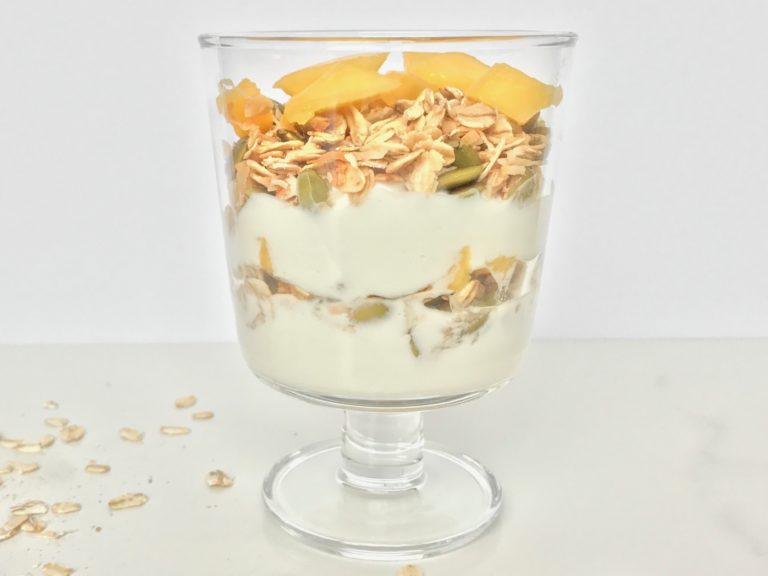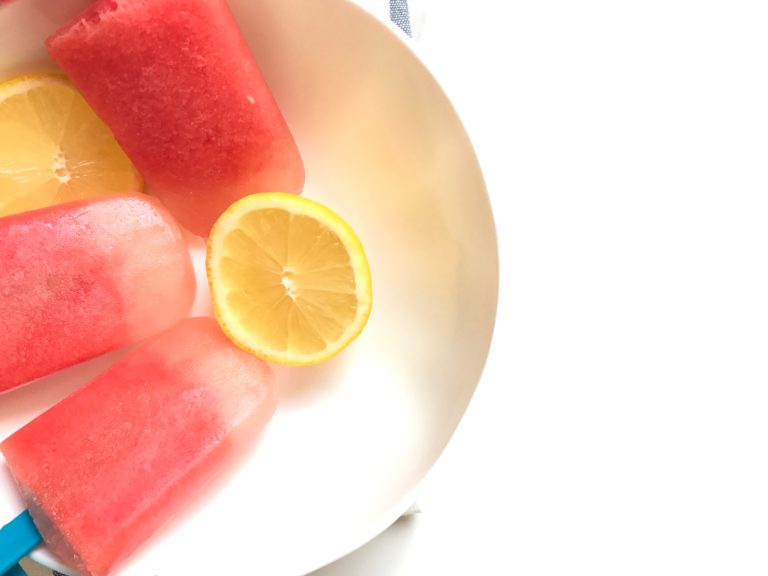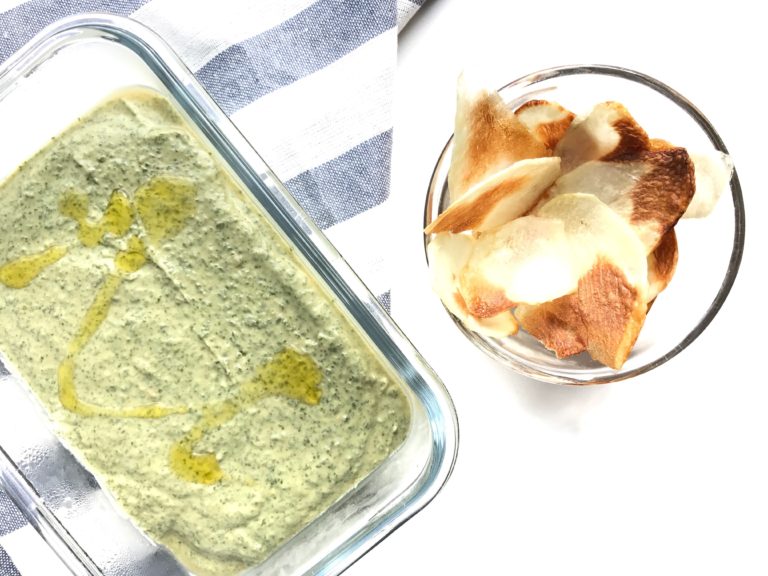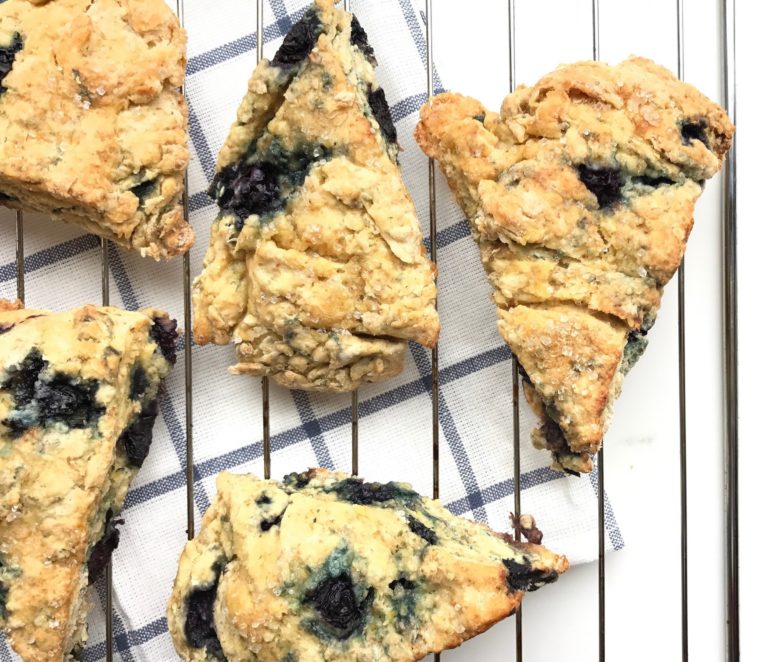Greek yogurt blueberry muffins
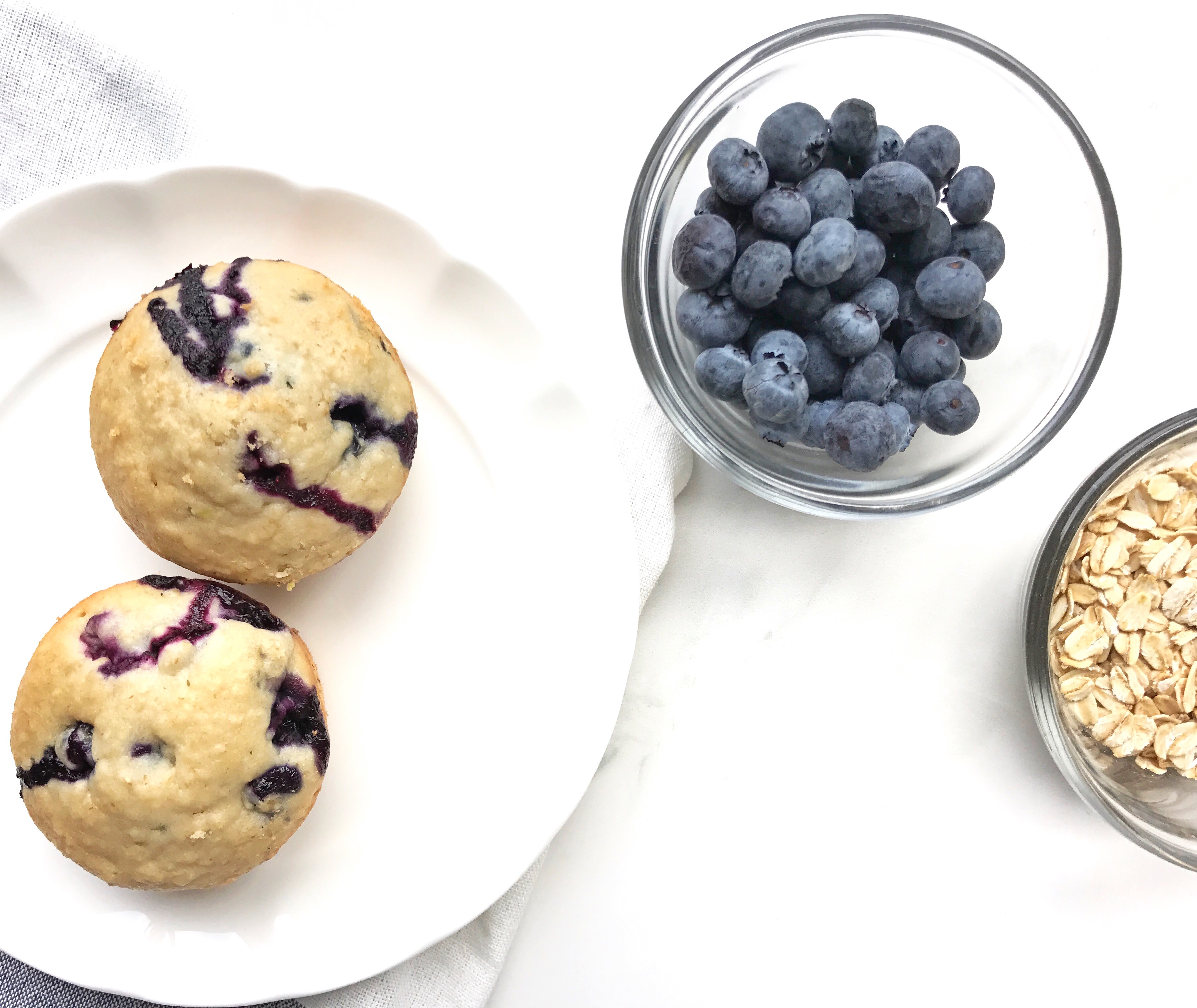
Greek yogurt blueberry muffins are a nice treat to enjoy with some tea or coffee, especially with the colder weather. I often get asked about baked goods and sweet treats. Living a healthy and balanced life does include some treats, it should not be an all or nothing type of situation. I believe in fuelling our body and mind with nutritious food, however, I also believe in the occasional treat. What I love about the Greek yogurt blueberry muffin recipe I am sharing with you, is the fact that it is a treat but it is also nutritious. Yes, you heard me. A nutritious muffin? We always hear that muffins are dense and filled with refined carbohydrates. They are also too sweet and provide no nutritional benefit. This recipe is definitely the exception.
There are many different ways to alter a recipe to make it healthy. You have to look at each ingredient and determine if there is a healthy alternative. Substitutions can be made for the sugar, fat source and flour. However, there are healthy alterations made. In this particular recipe, I did not use a sugar substitute such as maple syrup, instead I decreased the total amount of sugar in the recipe. In terms of a fat substitute, I used Greek yogurt which I have used in previous recipes such as my Greek yogurt blueberry scone recipe





